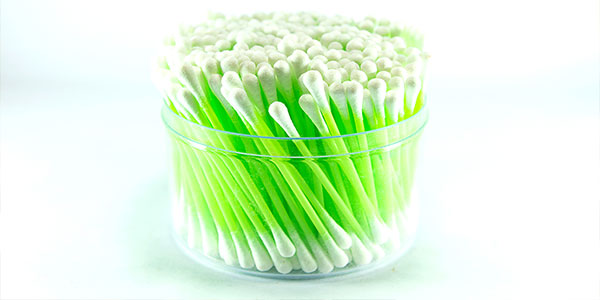Protect Your Ears and Hearing
Your hearing is precious — once it’s damaged, you can’t get it back. Although you can’t prevent all forms of hearing loss, you can take steps to protect your ears from irreversible harm.
Douglas Hetzler, M.D., an ear, nose and throat specialist with Sutter, offers tips to care for your ears and maintain your hearing.

Deafening Noise
Noise exposure is one of the most common — and preventable — causes of hearing loss. About 15% of Americans between ages 20 and 69 suffer high-frequency hearing loss due to noise, according to the National Institutes of Health.
Loud noises damage the delicate hair cells inside your inner ear, often forever. It takes mere minutes or even seconds for ear-splitting sporting events, dance clubs, firecrackers, firearms, motorcycles and personal music players to permanently harm your hearing.
“I’ve had patients who’ve describe going to a concert, ringing started in their ears, and from that point forward their hearing was different,” Dr. Hetzler says. Even less extreme noises, such as a lawn mower, power drill or construction racket, can injure your ears over longer periods.
A rule of thumb: Any time noise makes it impossible to carry on a conversation without raising your voice, “you’re creeping into the zone where it might cause ear damage,” Dr. Hetzler says.
Safeguard Your Hearing
Hearing protection offers the simplest solution. When you head out for a concert or sporting event, throw a few pairs of inexpensive foam earplugs (available in drugstores) in your pocket, Dr. Hetzler suggest. You’ll find that “the concert experience with earplugs and without is not much different,” he says.
Also wear earmuffs or earplugs when using power tools around the house. Be sure earplugs fit snugly inside your ear canal, with very little sticking out.
According to rules set by the Occupational Safety and Health Administration (OSHA), your employer must test and reduce worksite noise levels and provide you with appropriate hearing protection if needed.
Minding your noise exposure could slow age-related hearing loss, which partly results from years of din. Studies of people in less noise-afflicted cultures show that “they tend to hang onto their hearing much better into later years,” Dr. Hetzler says.
“If you’re not paying attention, the day may come when you say, ‘Uh-oh, I've killed off some hearing.’ And you can’t go back and undo that,” he says.
Take Care When Cleaning
Despite the old adage to never put anything smaller than your elbow in your ear, most people do use cotton swabs to clean their ears. “It can be done safely — just control the depth,” Dr. Hetzler says. Grab the swab where the cotton meets the stick, and don’t insert it farther than that, he advises, because your eardrum is only about one inch inside. You don’t necessarily need to assist wax removal; most people’s ears are “self-cleaning,” Dr. Hetzler says.
If you really want to see what’s going on inside your ears, new magnifying scopes that attach to cell phone cameras allow you to peer down your ear canal and take a photo, Dr. Hetzler says.
Ear Candles Debunked
Put simply, “ear candling is a total fraud,” Dr. Hetzler says. With this supposed earwax removal method, the material you see afterwards in the burned candle is not withdrawn earwax and “toxins,” but wax from the candle itself, he says.
In one case, Hetzler photographed a patient’s ears before and after ear candling. Before, the ear was “pretty pristine, with a couple little flakes of wax. Afterwards, there was soot in their ear from the candle, and the bits of wax were still there,” he says.
You also risk burning material falling inside your ear. “There have been reports of embers burning holes in eardrums,” Dr. Hetzler says.
When To See a Doctor
If you've noticed changes in your hearing or you're exposed to a lot of loud noise, make an appointment with your doctor to have your hearing checked.
Discover Similar Stories
Choose a topic below to read more stories like this one.
Breathe Easier
Breathe, sleep and feel better. Our ear, nose and throat specialists are here to help with everything from ear infections to sleep apnea.





